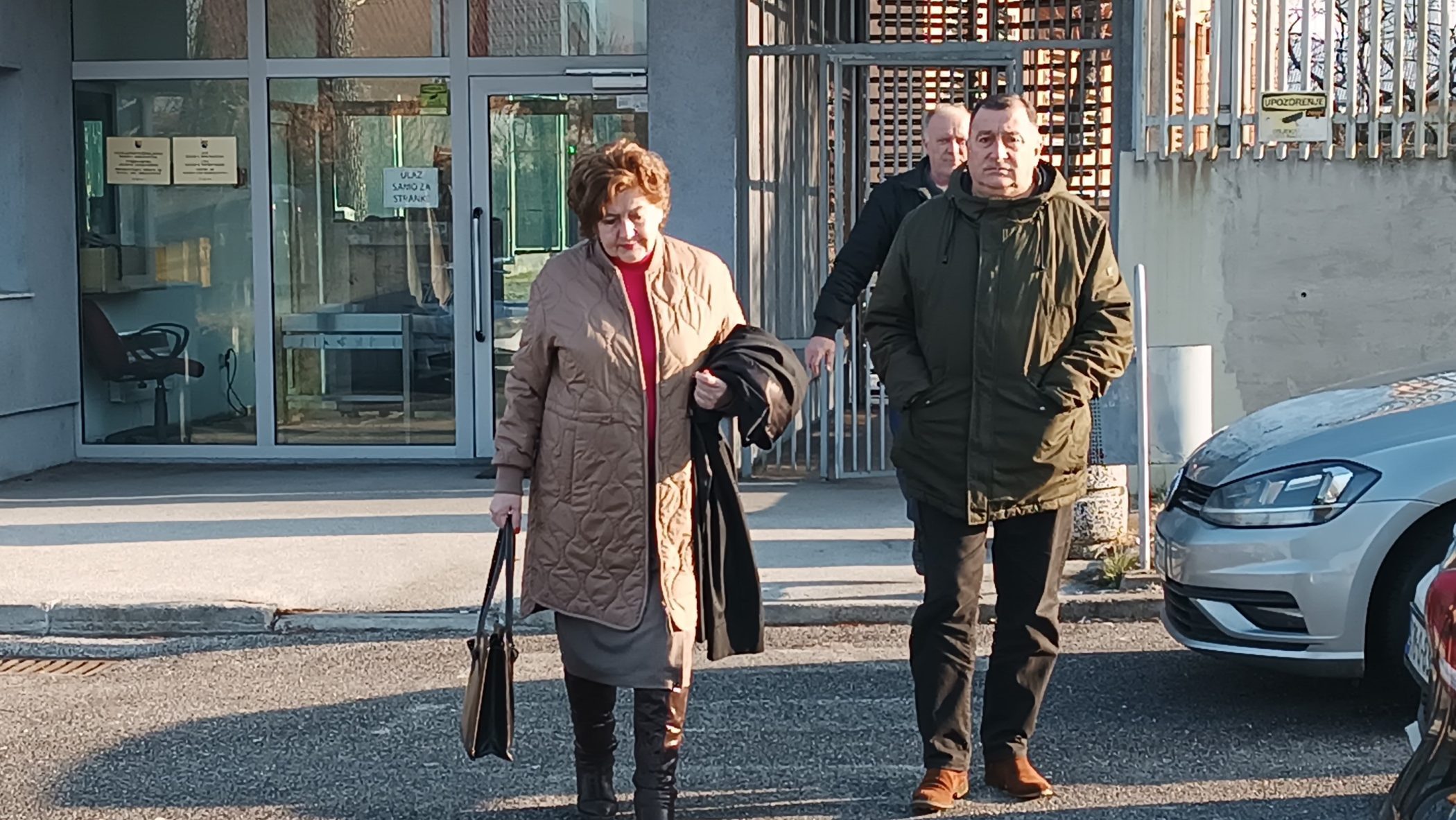This post is also available in: Bosnian
Mile Puljic, the former commander of the Second Battalion of the Second Brigade of the Croatian Defense Council (HVO), has been charged with allowing his subordinates to take detainees held in the Heliodrom detention camp to locations where they performed forced labour and were used as human shields from May 1993-March 1994. While performing forced labour, 11 detainees were killed, 73 were wounded, and 15 were physically abused by members of the Second Battalion.
State prosecution witness Alen Bjelica said he lived in Mostar with his mother and sister until June 30, 1993. On that date, Croatian Defense Council soldiers drove all Bosniaks out of the neighbourhood, including minors and the elderly, bussed them to the Heliodrom detention camp and detained them there.
“Five or six of them entered the apartment and just asked, ‘What are you? Are you Muslims?’…They told me to come with them. I was 16 and a half. I wasn’t a soldier. I wore a navy striped T-shirt and a torn pair of jeans,” Bjelica said.
Bjelica said that during his detention at the Heliodrom camp, he and other detainees were taken to several locations to work every day. He said he worked on Santiceva Street in Mostar twice.
He said detainees were forced to fill bags with sand and use them to build walls and move the division line forward. They also filled ammunition chargers and evacuated wounded and killed soldiers.
Bjelica said he was wounded while performing forced labour on Santiceva Street on August 13, 1993.
“It was summer in Mostar. The temperature was 40 degrees. It was unbearable…Some military operation had just begun. Hand grenades were flying around us like stones…A grenade fell right between about ten of us. I saw thick smoke and heard moaning and screaming,” Bjelica said, adding that he was severely wounded in the arm and head.
He said a a Herceg-Bosna policeman helped him and drove him to a hospital. After his injury, he wasn’t forced to work any more.
State prosecution witnesses and former Heliodrom prisoners Malik Kupuslija and Miralem Kreso also testified at today’s hearing. The witnesses described the detention and forced labour of Bosniaks held at the Heliodrom detention camp. Both men said they were wounded on August 31, 1993.
Kreso said he was wounded by a grenade while working on a street near the post office in Mostar, while Kupuslija was wounded on Santiceva Street.
“The shooting lasted the whole day. Three or four of us carried bags, but they kept falling down because of the shooting. A man, whose only family, just like in my case, was his mother, got killed on that day. When he was shot, I was piling bags. I continued doing it until the detonation,” Kupuslija said, adding that his head was covered with blood after the explosion.
Kupuslija said Croatian Defense Council soldiers had beaten them several times before they began performing forced labour.
“You are beaten first and then you do the work. They punched us, kicked us, hit us with their rifles…They intimidated us, so we wouldn’t try to flee,” Kupuslija said.
Kupuslija said staff at a Bijeli Brijeg hospital didn’t want to help him after he was injured while working, because he had been brought to the hospital with many wounded Croatian Defense Council soldiers.
“I remember people in white coats saying, ‘Take this Balija to jail,’” Kupuslija said.

